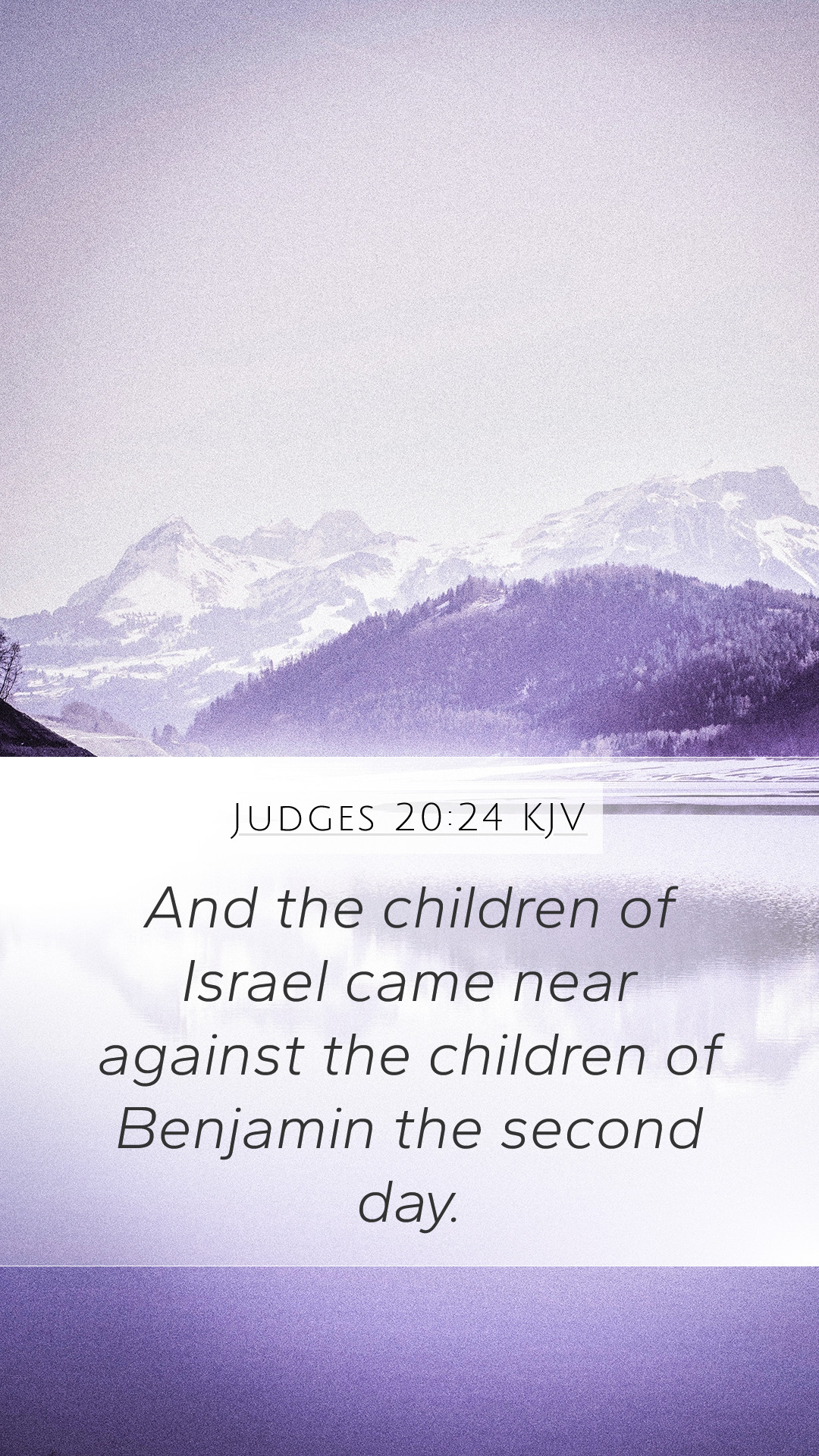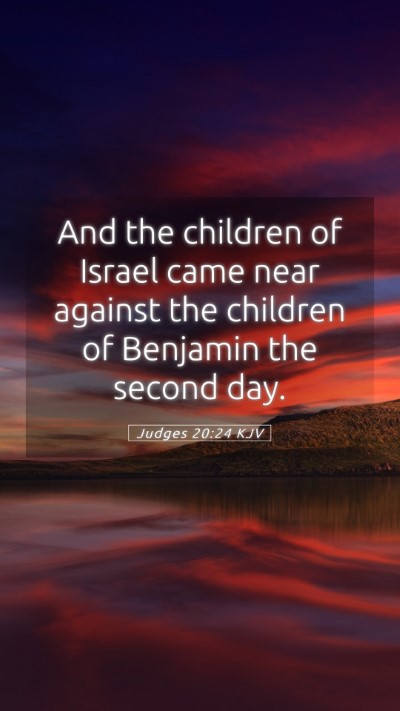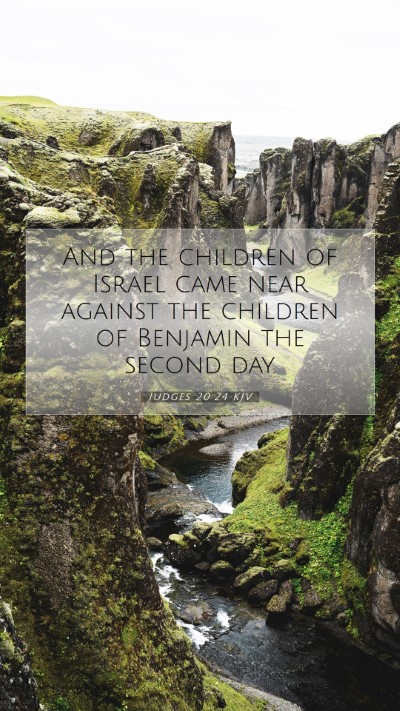Bible Verse Commentary: Judges 20:24
Judges 20:24 reads: "And the children of Benjamin came forth out of Gibeah, and destroyed down to the ground of the Israelites that day twenty and two thousand men." This verse occurs during a pivotal conflict between the Israelites and the tribe of Benjamin, highlighting both the tragedy of civil strife and the severe consequences of sin within the community.
Understanding the Context
Many Bible verse meanings stem from understanding the historical and social context of the text. The story unfolds as part of a series of battles initiated after the horrific events in Gibeah, where a Levite’s concubine was mistreated and killed. This incident led to a national outcry for justice, resulting in a military response against the tribe of Benjamin.
The Role of the Benjamites
The Benjamites, mentioned in Judges 20:24, were initially supported by their own community as they defended Gibeah against the coalition of Israelite tribes. Matthew Henry emphasizes the tragedy of their pride and violent resistance, highlighting the devastating impact of their actions. The fierce battle signifies not just a physical conflict but a moral and spiritual decline among God's chosen people.
Insights from Commentaries
-
Matthew Henry interprets the verse as a solemn reminder of the severity of internal conflict among the Israelites. He notes that the slaughter reflects the consequences of sin, as factions arise and the righteous are led to battle against one another.
-
Albert Barnes provides a detailed biblical exegesis, focusing on the loss of life that symbolizes the gravity of the situation. He points out that this engagement was not just about land or power but rather the purity of the nation and its covenant with God.
-
Adam Clarke emphasizes the implications of the choices made by both sides. He discusses how the repeated attempts of contentment led to further destruction and serves as a warning to readers about the ramifications of unresolved disputes.
Theological Significance
The struggle in Judges 20:24 reflects broader themes within Scripture concerning justice, repentance, and divine judgment. The sheer number of casualties highlights the grave nature of division and sin among God's people. As readers seek Bible study insights, it becomes crucial to observe how God uses even the most distressing circumstances to amplify His purposes.
Implications for Today
Many who engage in online Bible study use verses like Judges 20:24 as foundational examples of internal conflict that can occur within communities, echoing the importance of reconciliation and unity in the body of Christ. Understanding how to interpret Bible verses like this leads to deepened faith and resolves conflicts in modern contexts.
Application of Judges 20:24
Applying the lessons from this verse involves recognizing the consequences of division in our lives today. It's essential to seek peace and resolution rather than allow conflicts to fester. Moreover, this passage prompts introspection on how personal, group, and national conflicts can draw us away from God.
Related Bible Verses
Judges 20:24 connects with several other biblical passages that explore themes of conflict and divine justice:
- Deuteronomy 13:12-18: Instructions about dealing with rebellion within the community.
- 1 Samuel 15:23: Highlighting the consequences of disobedience to God.
- Matthew 5:9: Blessed are the peacemakers, for they shall be called children of God.
Conclusion
In summary, Judges 20:24 serves as a sobering reminder of the conflicts that arise when sin permeates a community. Through the lens of Bible verse commentary, one glean insight into the weighty implications of disunity and the critical need for righteousness in our relationships today. Ultimately, studying such passages can equip us not only for personal growth but also engage us in broader discussions on morality and faith in the context of modern society.


